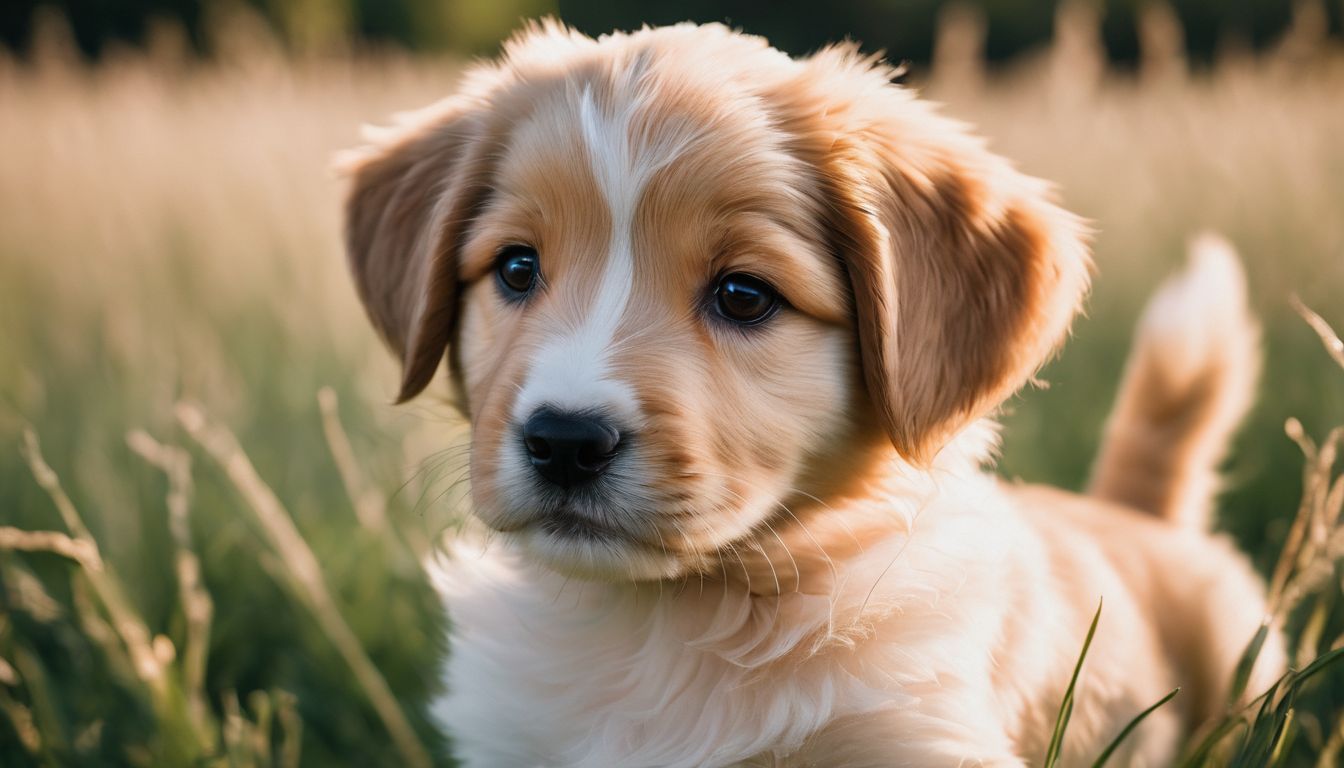Ever wondered when your furry friend will need to go out after chowing down their favorite meal? Fact is, most puppies tend to poop within 5 to 30 minutes after eating. This blog post delves into understanding puppy digestion and the time it usually takes for them to have a bowel movement post-feeding. How soon after eating do puppies poop?
Stick around as we provide useful tips on regulating your pup’s pooping schedule effectively.
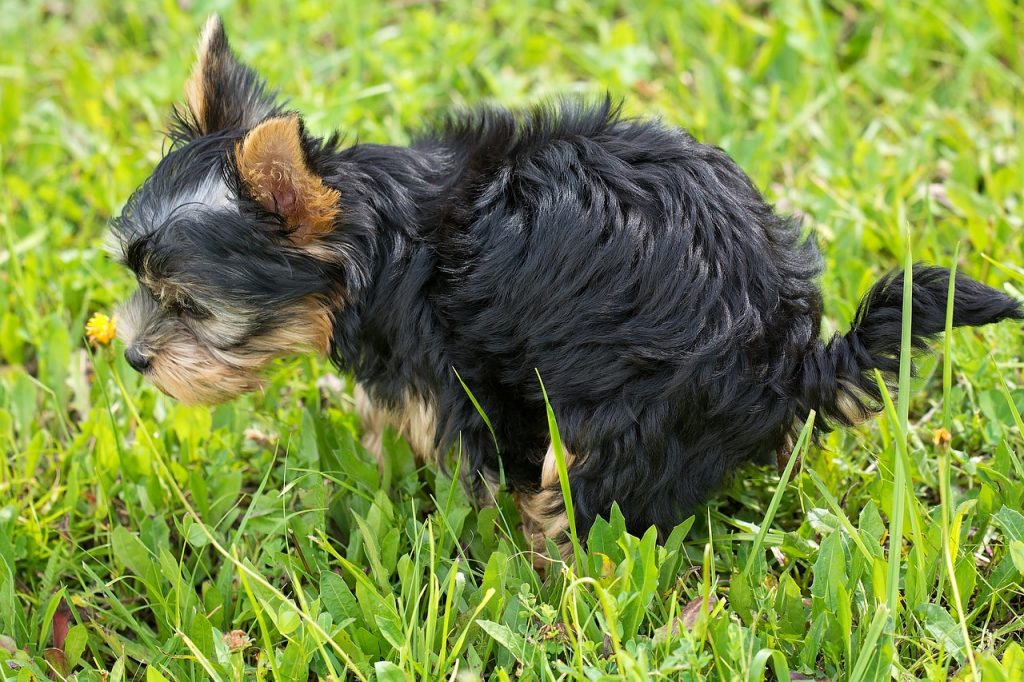
Key Takeaways
- Most puppies poop within 5 to 30 minutes after eating.
- Factors that affect digestion time include the puppy’s age, type of food, size and breed, and frequency of meals.
- Young puppies tend to have faster digestion compared to adult dogs.
- The type of food can also impact when a puppy poops after eating.
- Small breeds usually have quicker digestion than larger breeds.
- Establishing a regular feeding schedule can help regulate a puppy’s poop schedule.
- Monitoring water intake is important for proper digestion and preventing constipation.
- Any changes in behavior or appetite should be observed and may require veterinary consultation.
Understanding Puppy Digestion
The canine digestive tract consists of several organs that work together to break down food. Digestion time can vary depending on factors such as the puppy’s age, type of food, and their size and breed.
The canine digestive tract
Dogs use their digestive tract to break down food. The process starts in the dog’s mouth. Dogs chew and swallow their food, which then moves down a tube called the esophagus. Next, the food lands in the stomach where acids start to break it down more.
From there, the mushy food goes into a long tube called intestines. Here it gets broken down even more by juices from organs like liver and pancreas. This turns bigger parts of food into tiny bits that dogs’ bodies can use for energy, growth and repair work.
Whatever isn’t used comes out as poop through another short tube called rectum.
Digestion time length
The digestion time for dogs can vary, but it usually takes between 4 and 8 hours. This means that after a dog eats, it may take them several hours before they poop. However, most dogs tend to have a bowel movement within 30 minutes of eating.
It’s important to note that the time it takes for a dog to digest food is not solely based on when they poop. Factors like the age of the puppy, type of food, size and breed of the puppy, and frequency of meals also play a role in their digestion process.
So while some puppies may poop shortly after eating, others may take a bit longer. Overall, it’s normal for dogs to have their own individual digestion timeline.
Factors that affect digestion time
Several factors can affect a puppy’s digestion time. First, the age of the puppy plays a role. Younger puppies tend to have faster digestion compared to older ones. Second, the type of food they eat can impact how long it takes for them to digest and poop.
Some foods are easier to digest than others. Third, the size and breed of the puppy also contribute to digestion time. Smaller breeds may have quicker digestion compared to larger breeds.
Lastly, the frequency of meals can affect when a puppy poops after eating. Puppies that eat more frequently may have more frequent bowel movements as well. Remember that these factors vary from dog to dog, so it is essential to observe your own pup’s habits and consult with a veterinarian if you have concerns about their digestion process.
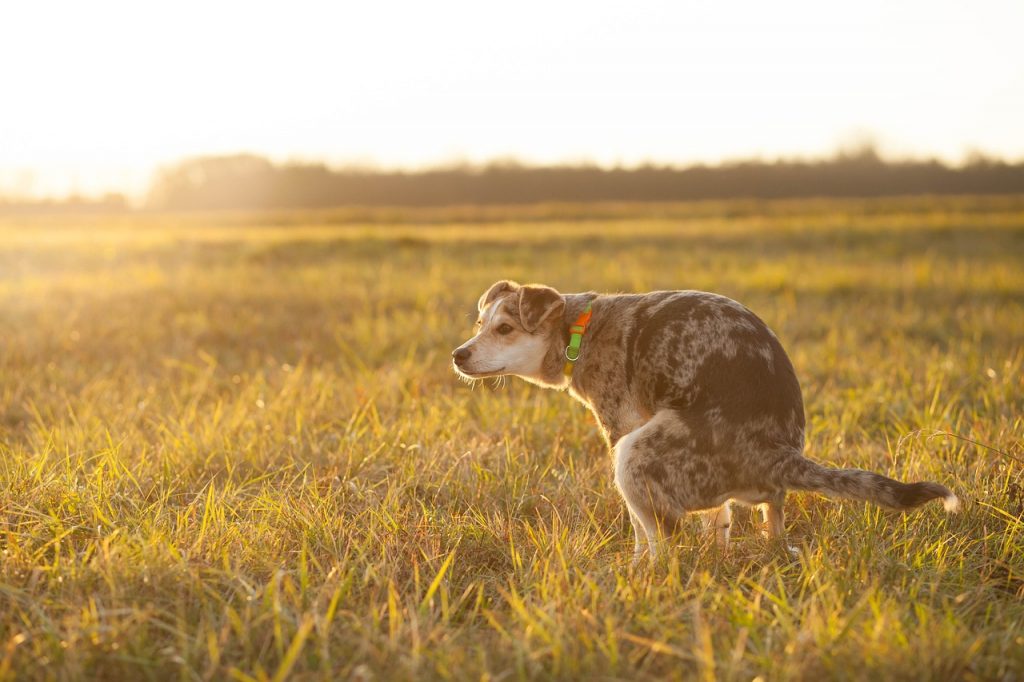
How Long After Eating Does a Puppy Poop?
A puppy’s age, type of food, size and breed, and frequency of meals can all affect how long it takes for them to poop after eating.
Age of puppy
The age of your puppy can affect how soon they poop after eating. Puppies usually have faster digestion than adult dogs, so they may need to eliminate waste sooner. Typically, puppies will poop between 5 to 30 minutes after eating.
This is because they have a gastro-colic reflux, which triggers the urge to poop after a meal. So if you have a young pup, be prepared for those quick bathroom breaks! Remember that each puppy is unique, and their digestion timeline may vary slightly.
Type of food
The type of food you give your puppy can also affect when they poop after eating. Different types of food have different digestion times, which can impact the timing of their bowel movements.
For example, if you feed your puppy wet food or homemade meals, it may take longer for their bodies to break down and digest the nutrients. On the other hand, if you feed them dry kibble, it is typically easier for their bodies to process and digest.
Keep in mind that every dog is unique, so what works for one may not work for another. It’s important to find the right type of food that suits your puppy’s digestive system and promotes regular bowel movements.
Size and breed of puppy
The size and breed of your puppy can also play a role in how soon they poop after eating. Small breeds tend to have faster digestion compared to larger breeds. This means that small puppies may need to eliminate waste sooner after a meal than their larger counterparts.
Additionally, some specific breeds may have different digestive systems, which can affect the timing of their bowel movements. It’s important to consider these factors when trying to anticipate when your puppy will need to go potty after eating.
Frequency of meals
Your puppy’s poop schedule can be influenced by the frequency of their meals. Most dogs will have a bowel movement within 30 minutes of eating. If you feed your dog two meals a day, they may poop twice a day.
Puppies typically poop between 5 to 30 minutes after eating because they have a gastro-colic reflux that leads to the urge to eliminate waste after a meal. It’s important to establish a regular feeding schedule for your puppy to help regulate their bathroom habits.
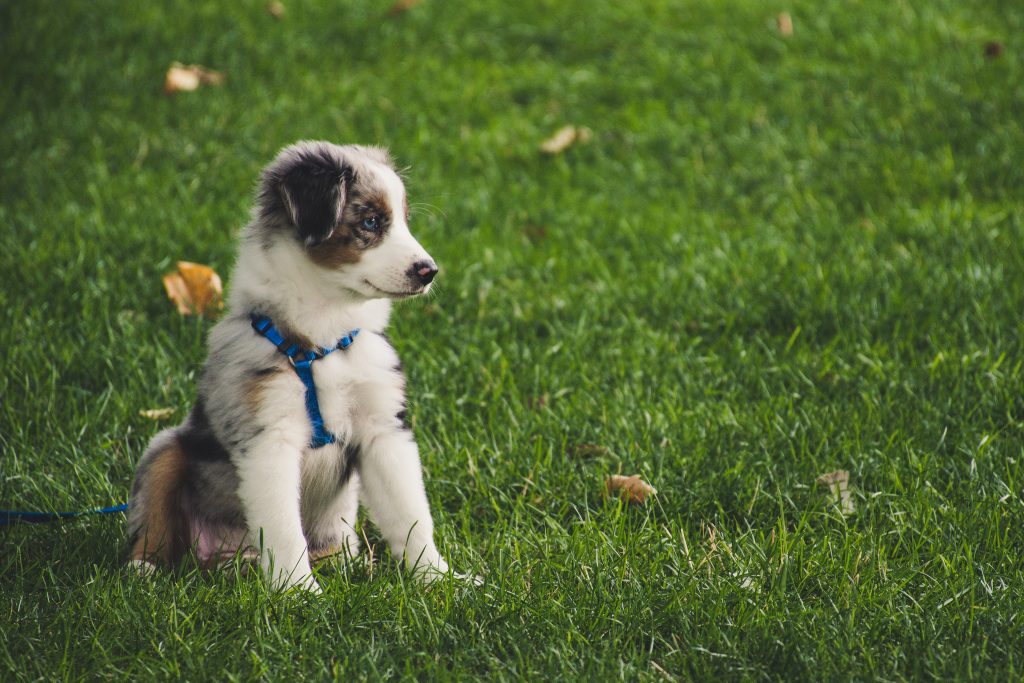
Tips to Help Regulate Your Puppy’s Poop Schedule
Establish a regular feeding schedule, monitor their water intake, watch for any changes in behavior or appetite, and consult with a veterinarian if needed.
Establish a regular feeding schedule
To help regulate your puppy’s poop schedule, it’s important to establish a regular feeding schedule. This means feeding them at the same times every day. By doing this, you are training their digestive system to expect food at certain times, which can help regulate their bowel movements.
Consistency is key when it comes to establishing a routine for your furry friend. It’s also important to feed them appropriate amounts of food based on their size and age, as overfeeding can lead to digestive issues and irregular bowel movements.
Regularity in feeding will contribute to more consistent potty habits for your puppy.
Monitor their water intake
Make sure to keep an eye on how much water your puppy drinks. Water is important for digestion and helps prevent constipation. Ensure that your puppy has access to fresh water throughout the day, especially after meals and playtime.
It’s crucial to avoid letting them get dehydrated, as this can affect their digestive system and lead to irregular bowel movements.
Watch for any changes in behavior or appetite
Keep an eye on your puppy’s behavior and appetite. If you notice any changes, it could be a sign that something is wrong. It’s important to pay attention to how they act and if they’re eating normally.
If there are any sudden shifts in their behavior or appetite, it may be best to consult with a veterinarian just to be safe.
Consult with a veterinarian if needed
If you have any concerns about your puppy’s digestion or their pooping habits, it’s always a good idea to consult with a veterinarian. They can provide professional advice and guidance tailored specifically to your puppy’s needs.
Vet consultations can help identify any underlying issues or health conditions that may be affecting your puppy’s digestive system or causing irregular bowel movements. Remember, vets are there to support you in keeping your furry friend happy and healthy, so don’t hesitate to reach out if you have any questions or concerns.
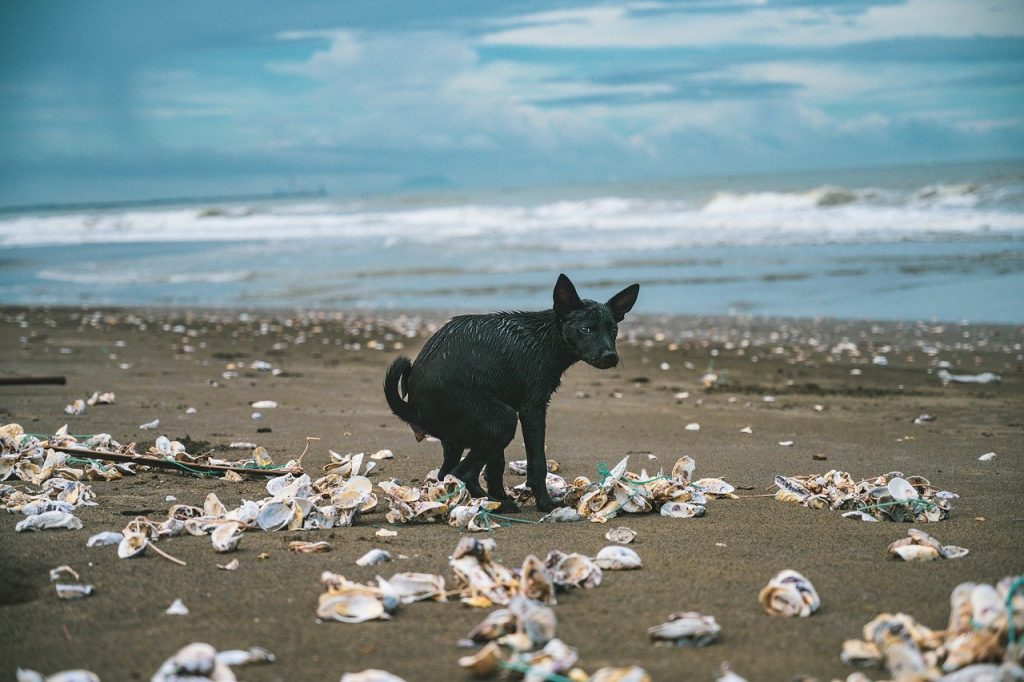
Conclusion
In conclusion, the time it takes for a puppy to poop after eating can vary. Factors such as age, type of food, size and breed of the puppy, and frequency of meals can all affect their digestion and elimination schedule.
Generally, puppies poop within 5 to 30 minutes after eating. Remember to establish a regular feeding schedule and monitor their behavior and appetite for any changes. If you have concerns about your puppy’s digestion or pooping habits, consult with a veterinarian for guidance.
FAQs
1. What is the usual time for dogs to have a bowel movement after eating?
After eating, it usually takes some time for dogs to digest food and poop. This interval varies based on age and diet.
2. How often should puppies poop after meals?
The frequency of puppy pooping changes as they grow up. Puppies might need to defecate right after dining because their digestive system works promptly.
3. What factors affect the puppy’s digestion timeline?
A dog’s digestion process can depend on many things such as their size, breed, type of food eaten and health status which affects how long it takes them to eliminate waste after a meal.
4.What are typical puppy excretion patterns?
Young dogs or puppies typically have more frequent bowel movements than adult dogs due to their faster metabolism so expect your pup to go soon after a meal!
5.Can you help me understand the duration of dog digestion better?
Dog food digestion does not take very long – usually just a few hours from when they eat until something comes out at the other end! The exact timing could be different depending on various elements like what your pet has been feeding on.
6.How can I schedule my puppy’s potty needs correctly?
A good way is watching out for their elimination habits, keeping close tabs over their routines would let you predict when they will may need bathroom breaks post meals!


